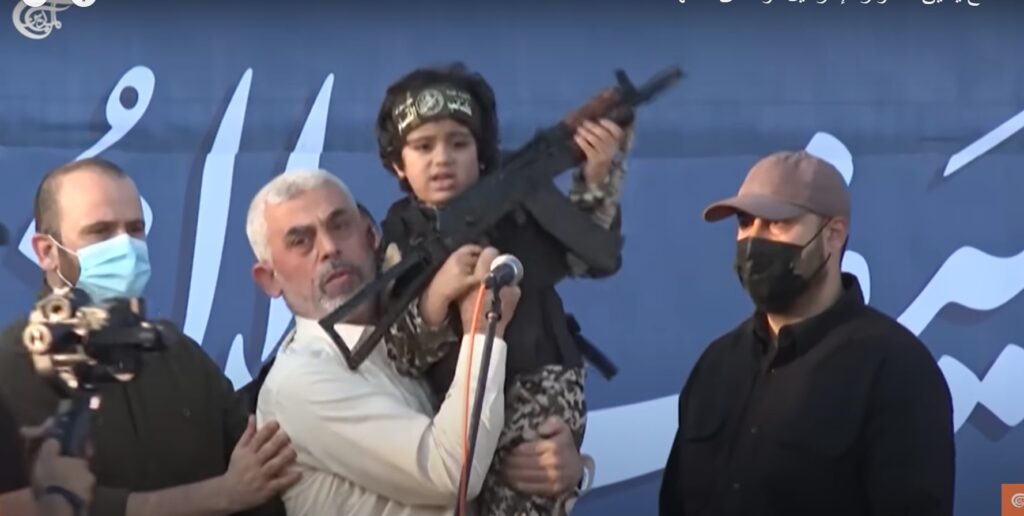As time progresses, insights into the decision-making process behind the assault orchestrated by Yahya Sinwar and Muhammad Def are beginning to surface.
According to officials within Hamas, the military leadership acted independently, excluding collaboration with traditional allies such as Iran and Hezbollah, among others.
While Iran was generally aware of Hamas’ intention to strike Israel, the specific timing remained concealed from both Iran and Hezbollah.
This deliberate secrecy aimed to ensure Yahya Sinwar received full credit for the operation.
In a captured meeting transcript from January 2023, Sinwar allegedly affirmed Iran’s commitment to support Hamas in its “war of liberation.”
Sinwar and Def meticulously compartmentalized information to optimize the element of surprise, even withholding details from the political leadership of Hamas until shortly before the attack.
Only an hour prior to the assault, Sinwar briefed Saleh Al-Arouri, Hamas’ deputy chairman and head of the military wing in Judea and Samaria.
The decision to bypass the consensus of Hamas’ advisory Shura Council underscores the military leadership’s determination to maintain secrecy and maximize the element of surprise.
To mitigate tensions between the military and political wings, Hamas leaders abroad have retroactively endorsed the military’s authority to execute such operations independently.
However, this unilateral action has strained relations with Iran and Hezbollah, both of which were caught off guard by the attack.
Consequently, Hamas finds itself isolated, devoid of the anticipated military support that could have potentially sustained its position in the conflict.
In contrast, Hezbollah has opted for a restrained approach to its conflict with Israel in southern Lebanon, refraining from escalating to all-out war.
Surprisingly, Hamas itself was taken aback by the magnitude of its success in the assault on Israeli settlements.
Sinwar and Def had underestimated Israel’s response, anticipating a limited engagement akin to previous skirmishes, rather than the full-scale conflict that ensued.
This misjudgment mirrors Hassan Nasrallah’s error in triggering the Second Lebanon War in 2006, highlighting a recurring pattern of flawed assessments of Israel’s reactions.
Musa Abu Marzouk, a senior Hamas official, admitted to the unexpected severity of Israel’s retaliation, acknowledging a lack of anticipation for the unwavering support from Western powers.
The fate of the numerous Israeli captives held by Hamas hangs in the balance, raising doubts about the organization’s survival and its ability to claim victory.
Presently, Hamas’ military leadership has lost control over the Gaza Strip, with significant casualties and the IDF’s occupation of strategic territories.
Fleeing into tunnels, they face imminent capture or elimination by IDF forces.
The populace in Gaza views the unilateral decision of Hamas’ military leadership as a catastrophic misstep, predicting further hardship rather than relief from the blockade or the establishment of vital infrastructure.
In the aftermath of the conflict, Hamas will undoubtedly reassess its internal dynamics, particularly the relationship between its military and political wings.
However, the repercussions extend beyond Hamas, with the broader Muslim Brotherhood movement losing a key stronghold in the Arab world.
The once-powerful Islamic Emirate in Gaza, established in 2007, has now crumbled, leaving Hamas to contend with the aftermath of its ill-fated decision-making.




